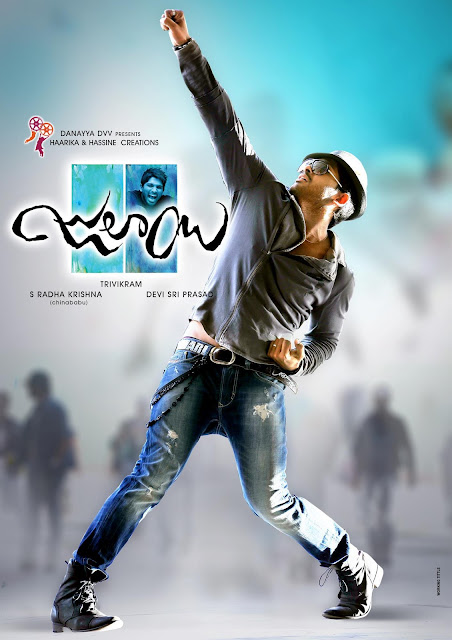Date of Birth:
1925, Vizag, Andhra Pradesh, India
Date of Death:
1998
Trivia:
Wife, K. Ramalakshmi is a well known author.
Bhagavatula Sadashiva Shankara Sastry known by his pen-name Aarudhra (31 August 1925 - 4 June 1998) is a highly respected author in Modern Telugu literature of Andhra Pradesh, India.
Early Life
He was born in Visakhapatnam on August 31, 1925. After the primary education here, he shifted to Vizianagaram in 1942 for his college education. The seeds of Communism were sowed in his mind after he came in contact with people like Ronanki Appalaswami and Chaganti Somayajulu.
He joined the Indian Air Force as a band boy in 1943 and served it till 1947. He shifted to Madras and worked as editor of `Anandavani' magazine for two years. Joining the cine field in 1949, he wrote lyrics and dialogues for many films.
He married noted writer, K.Ramalakshmi (a columnist and a writer-critic in her own right) in 1954.
Literary Works
Arudra was a multifaceted personality. He wrote many poems, essays, short stories, dramas, translations, film songs, detective stories and a book on Chess.
Tvamevaham (You are none other than me) and Samagra Andhra Sahityam (An Encyclopedia of Telugu Literature) are landmark works of this great writer.
He wrote poetry Koonalamma Padaalu in 1964. In this poem, he describes contemporary society in a sarcastic way in a very simple style.
Arudra wrote several poems on his reminiscences of the Second World War.
His Clerk Surya Rao was a reflection of modern city life. He projected the city from various angles.
He penned popular lyrics for many block-buster films based on the Ramayana. He added to the field of Ramayana studies with his scholarly work called Ramudiki Sita Yemautundi? (1978) (bluntly translated to: How is Sita related to Rama?)
He translated the Tamil treatise Tirukkural into Telugu.
He belonged to the school of progressive writers 'Abhyudaya Rachayitala Sanghom'?, (a very potent force in Andhra Pradesh).
He was an accomplished chess player and wrote a book about this game.
Incidentally, he is a cousin of Sri Sri (Srirangam Srinivasa Rao - most celebrated modern Telugu poet).
Tvamevaham
Tvamevaaham written in 1948 is a masterpiece. It was based on the contemporary violence and lawlessness during Razakar movement in Telangana. The Razakar attrocoties were sponsored by the Nizam against his own people who wanted to overthrow him in favor of democracy and join the Indian Union. In this kaavyam, death spoke to a human being and says, "you and I are the same (tvamEvaahaM)"
An imaginary sand clock and a water clock were used by the poet to depict time in Tvamevaham. The `hours' are a symbol of the rich and affluent, the `minutes' denote the attitude of the middle class and the `seconds' are likened to the mentality of the working class. A stop watch was depicted as an instrument to measure `revolution'. The `key' fanned revolution, while the `alarm' was a warning of the prevailing situation.
The Samagra Andhra Sahityam
Aarudhra first published the SAS in 12 parts between 1965 and 1968. It spans the Telugu literature from the 9th century CE to modern times. He chronicled the history of Telugu Literature in 12 volumes:
1. Early and Chalukya Era (From 8 - 9c CE to end of 12c CE)
2. Kakatiya dynasty (1200 - 1290 CE)
3. Padmanayaka Era (1337 - 1399 CE)
4. Reddiraju Era (1400 - 1450 CE)
5. Early Rayala (Vijayanagara) (1450-1500 CE)
6. Later Rayala (Vijayanagara) (1500-1550 CE)
7. Nawabs' (1550-1600 CE)
8. Nayaka Kings (1600- 1670 CE)
9. Later Nayaka Kings (1670-1750 CE)
10. East India Company (1750 - 1850 CE)
11. Zamindari (1850 - 1900 CE)
12. Modern (1900 CE onwards)
List of His Works
* Poems (Kavyas): Tvamevaaham, Sinivaali, koonalamma Padaalu, Intinti Padyaalu.
* Lyrics: Gaayaalu-Geyaalu, Pailaapacceesu, Yencina Padyaalu, Yetikedadi, Kondagaali Tirigindi.
* Translations: Veera Telangaana Viplava Geetalu (from English), Vennela-Vesavi (from Tamil), Kabeer Bhaavaalu and Batvaada-Arudra (from Hindi).
* Dramas: Udgeedha, Geyanaatika, Raadaari Bangla, Saalabhanjikalu.
* Dual Poetry: Rukkuteswara Satakam (with Sri Sri), Meemee (with Sri Sri and Varada)
* Research Work: Samagraandhra Saahityam, Arudra Vyaasapeetham, Raamudi ki Seeta Yemavutundi?
* Other works: Short stories, Mahaneeyulu, Chadarangam, cinema scripts and lyrics.
Filmography
Writer:
1. Anugraham (1978) (dialogue)
2. Kondura (1978)
3. Farz (1967) (story)
4. Goodachari 116 (1967) (story and dialogue)
5. Dakshayagnam (1962/I)
6. Illarikam (1959) (dialogue)
7. Veera Kankanam (1957) (dialogue)
8. Kanna Talli (1953)
9. Pakka Inti Ammayi (1953) (screen adaptation)
Kotha Bangaru Lokam Copied Scenes
SEARCH
2.28.2008
ARUDRA
Note: Don't forget to leave a comment

Posted by muralikrishna at 5:19 AM
Subscribe to:
Post Comments (Atom)





0 Comments:
Post a Comment